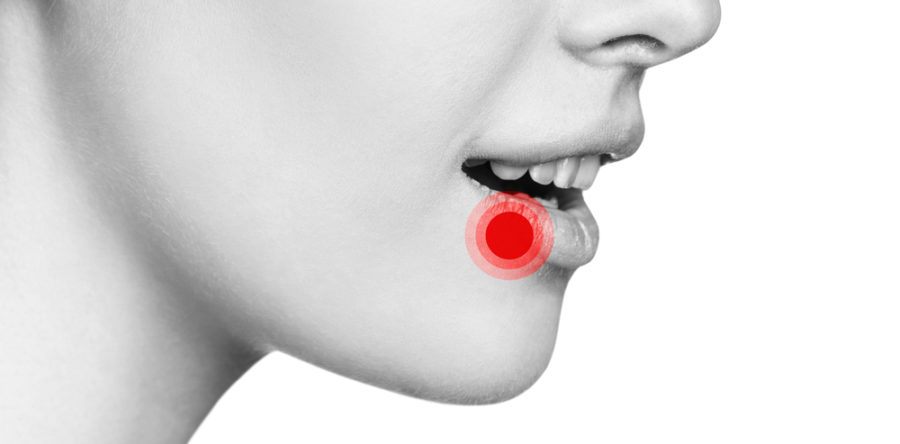Many of us at some point in our lives have experienced sores or lesions that occur in and around the mouth. No matter what type of sore it is, they can be painful, unsightly, and even turn eating into an awkward endeavour. Canker sores are one of the most common mouth sores that develop. Thankfully, they’re nothing to be concerned about, but they’re still unpleasant to endure. Here is a quick guide to canker sores so you can know what you’re up against the next time one may develop.
What exactly are canker sores?
These types of sores appear along the inside of the mouth. They are the most common type of mouth sore. You can identify them by a small white bump that’s surrounded by a red, swollen area. Although there isn’t a definite answer as to why exactly they develop, it’s believed that they’re correlated to bacteria, viruses, as well as common factors, such as stress, smoking, and allergies that can encourage them to surface. Canker sores are linked to toothpaste containing Sodium Lauryl Sulfate (SLS), which may account for some episodes.
Are they contagious?
Thankfully, cankers sores are not contagious. They are commonly mistaken for cold sores, which are contagious and completely different. Cold Sores are linked to a strain of the herpes virus, whereas cankers are not. The easiest way to tell the difference is that cankers only occur within the mouth. So the inner cheeks, tongue, and gum line are all areas where they may occur. Cold sores on the other hand, usually occur outside of the mouth.
Are they painful?
These mouth sores do cause some irritation and soreness. Depending on the location of the sore within your mouth, consuming certain foods and beverages can cause some pain. But the sensation is usually mild and not severe in any way.
How long do they last?
You can expect the sore to last usually between seven to ten days. Sometimes the duration can be shorter or longer. It is common however, to experience recurrence of them now and again, depending on circumstances and the level of strain your body and immune system may be under.
How can I get rid of it?
Waiting for a canker sore to run its course and disappear is usually the only way to really get rid of them. But patience aside, you can get over-the-counter topical ointments and even use pain relievers if the sensation is too bothersome. Antimicrobial mouth rinses can also help to alleviate that irritation.
If you have a canker sore, or have had one in the past, take comfort in knowing that it’s a very common occurrence and nothing to be alarmed about. And if you do feel concerned or you experience an abnormal number of canker outbreaks, talk to your dentist about it.


